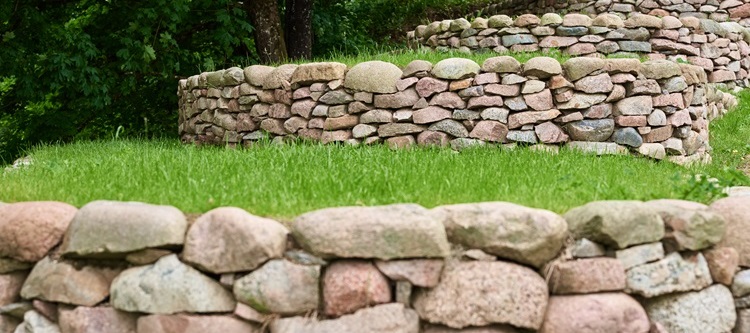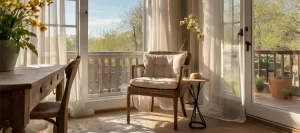In this article:
Imagine stepping into your backyard and being greeted by a vibrant, eco-friendly oasis that not only enhances the beauty of your home but also supports the natural wonders of Massachusetts. Sustainable landscaping is the secret to transforming your outdoor space into a haven for both you and the local ecosystem. As a Massachusetts homeowner, you have the unique opportunity to embrace responsible practices that conserve water, preserve biodiversity, and minimize environmental impact—all while creating a breathtaking landscape to be proud of.
In this comprehensive Q&A guide, we’ll answer your most pressing questions about sustainable landscaping in the state of Massachusetts. From choosing indigenous plants for your seasonal garden to implementing water-efficient solutions, we’ll delve into the essential principles and practical tips for creating a landscape that is not only stunning but also in harmony with nature. Whether you’re a seasoned gardener or a first-time green-thumb, get ready to unlock the potential of your Massachusetts property and embark on a rewarding journey of sustainability and beauty. Let’s dive in and unveil the green oasis in your own backyard!
What is sustainable landscaping, and why is it essential for Massachusetts homeowners?
Sustainable landscaping is an approach to designing, creating, and maintaining outdoor spaces that promote environmental health, conserve natural resources, and support local ecosystems. It emphasizes responsible practices that reduce waste, conserve water, and minimize the use of harmful chemicals. For Massachusetts homeowners, adopting sustainable landscaping is vital as it helps preserve the region’s unique biodiversity, reduces water consumption, and fosters a healthier environment for both people and wildlife.
Which Massachusetts native plants are suitable for sustainable landscaping?
When aiming for sustainable landscaping in Massachusetts, choosing native plants is a wise choice. Native plants are well adapted to the local climate and require less maintenance, including watering and pest control. Some indigenous plant options for Massachusetts homeowners include:
- Eastern Red Columbine (Aquilegia canadensis): Known for its stunning red and yellow flowers, this perennial is a favorite among pollinators like bees and butterflies.
- New England Aster (Symphyotrichum novae-angliae): A beautiful purple wildflower that blooms in late summer, attracting pollinators and beneficial insects.
- Winterberry (Ilex verticillata): A deciduous holly species, winterberry produces vibrant red berries in winter, providing food for birds during the colder months.
- Little Bluestem (Schizachyrium scoparium): This native grass offers a striking bronze hue in the fall and provides habitat for insects and small mammals.
How to design a sustainable landscape for my Massachusetts home?
Designing a sustainable landscape involves careful planning and consideration of the following factors:
- Site Analysis: Understand your property’s sun exposure, soil type, and drainage patterns to choose plants that thrive in the existing conditions.
- Plant Selection: Opt for native plants that require minimal water and maintenance. Group plants with similar water needs together to optimize irrigation efficiency.
- Lawn Reduction: Reduce the size of your lawn and replace it with native plants, trees, and shrubs that support local biodiversity.
- Mulching: Use organic mulch to retain soil moisture, suppress weeds, and improve soil health.
- Rain Gardens: Install rain gardens to capture and absorb rainwater runoff, preventing erosion and reducing the strain on stormwater systems.
- Composting: Start a composting system to recycle organic waste into nutrient-rich soil amendments for your garden.
What are sustainable watering practices?
- Water conservation is crucial in sustainable landscaping. To promote water efficiency, consider these practices:
- Drip Irrigation: Use drip irrigation systems that deliver water directly to plant roots, reducing water loss due to evaporation.
- Rainwater Harvesting: Collect rainwater from gutters and downspouts in barrels or tanks to use for watering plants during dry periods.
- Smart Irrigation Controllers: Install smart irrigation controllers that adjust watering schedules based on weather conditions and soil moisture levels.
- Watering Timing: Water your landscape during the early morning or late afternoon to minimize evaporation and prevent fungal growth.
How to promote biodiversity in sustainable landscape?
Creating a diverse and thriving ecosystem in your landscape contributes to its sustainability. Here’s how you can promote biodiversity:
- Pollinator Gardens: Plant native flowers that attract bees, butterflies, and other pollinators to support their populations.
- Native Trees and Shrubs: Incorporate a variety of native trees and shrubs that provide food and shelter for wildlife.
- Wildlife Habitat: Designate an area for wildlife by leaving fallen leaves and logs as habitat and providing nesting boxes for birds.
- Avoid Chemicals: Refrain from using chemical pesticides and herbicides that can harm beneficial insects and disrupt the ecosystem.
How to maintain a sustainable landscape throughout the seasons?
Sustainable landscaping requires year-round care and attention. Consider these maintenance tips for your New England landscape and garden design:
- Pruning: Regularly prune plants to remove dead or diseased branches and encourage healthy growth.
- Compost Application: Add compost to the soil annually to improve its structure and fertility.
- Seasonal Planting: Choose plants that offer interest throughout the seasons, such as flowers in spring and summer, colorful foliage in the fall, and berries in the winter.
- Weed Control: Practice hand weeding and mulching to control weeds without resorting to chemical herbicides.
Are there any incentives programs in Massachusetts for sustainable landscaping?
Yes, Massachusetts offers several incentives and programs to encourage sustainable landscaping practices:
- The Massachusetts Energy and Environmental Affairs (EEA): The EEA provides resources and information on sustainable landscaping and eco-friendly practices. This program offers an array of clean energy rebates and incentives.
- Massachusetts Water Resources Commission also offers water conservation incentives and guidelines to homeowners.
- Green Communities Act: This program encourages communities to adopt sustainable practices, including landscaping, to become designated as Green Communities and access grants for energy-efficient projects.
- Municipal Programs: Some cities and towns in Massachusetts may offer incentives or rebates for water-efficient landscaping initiatives.
By incorporating these sustainable practices into your landscaping design and maintenance, you can create a beautiful, environmentally friendly outdoor space that enhances the natural beauty of Massachusetts while preserving its precious resources for future generations. Happy landscaping!








